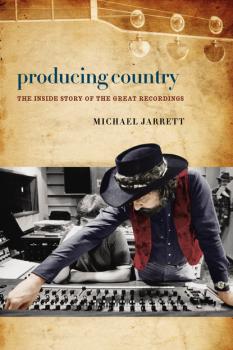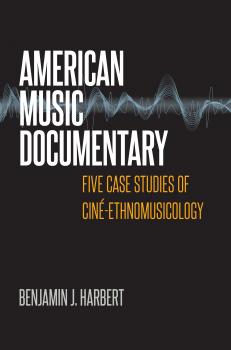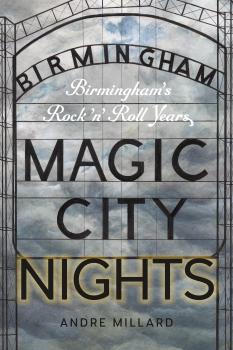Music/Interview
Скачать книги из серии Music/InterviewProducing Country
<P>Musicians make music. Producers make records. In the early days of recorded music, the producer was the «artists-and-repertoire man,» or A&amp;R man, for short. A powerful figure, the A&amp;R man chose both who would record and what they would record. His decisions profoundly shaped our musical tastes. Don Law found country bluesman Robert Johnson and honky-tonk crooner Lefty Frizzell. Cowboy Jack Clement took the initiative to record Jerry Lee Lewis (while his boss, Sam Phillips, was away on business). When Ray Charles said he wanted to record a country-and-western album, Sid Feller gathered songs for his consideration. The author's extensive interviews with music makers offer the fullest account ever of the producer's role in creating country music. In its focus on recordings and record production, Producing Country tells the story of country music from its early years to the present day through hit records by Hank Williams, George Jones, Patsy Cline, Buck Owens, Dolly Parton, Johnny Cash, Loretta Lynn, Waylon Jennings, and Merle Haggard, among many others.</P><P>Includes original interviews with producers Chet Atkins, Pete Anderson, Jimmy Bowen, Bobby Braddock, Harold Bradley, Tony Brown, Blake Chancey, Jack Clement, Scott Hendricks, Bob Johnston, Jerry Kennedy, Blake Mevis, Ken Nelson, Jim Ed Norman, Allen Reynolds, Jim Rooney, James Stroud, Paul Worley, and Reggie Young, among others.</P>
Fela
<P>Fela: Kalakuta Notes is an evocative account of Fela Kuti—the Afrobeat superstar who took African music into the arena of direct action. With his antiestablishment songs, he dedicated himself to Pan-Africanism and the down-trodden Nigerian masses, or «sufferheads.» In the 1970s, the British/Ghanaian musician and author John Collins met and worked with Fela in Ghana and Nigeria. Kalakuta Notes includes a diary that Collins kept in 1977 when he acted in Fela's autobiographical film, Black President. The book offers revealing interviews with Fela by the author, as well as with band members, friends, and colleagues. </P><P>For this second edition, Collins has expanded the original introduction by providing needed context for popular music in Africa in the 1960s and the influences on the artist's music and politics. In a new concluding chapter, Collins reflects on the legacy of Fela: the spread of Afrobeat, Fela's musical children, Fela's Shrine and Kalakuta House, and the annual Felabration. As the dust settles over Fela's fiery, creative, and controversial career, his Afrobeat groove and political message live on in Kalakuta Notes. Features a new foreword by Banning Eyre, an up-to-date discography by Ronnie Graham, a timeline, historical photographs, and snapshots by the author.</P>
I Got a Song
<P>The first-ever book exclusively devoted to the history of the Newport Folk Festival, I Got a Song documents the trajectory of an American musical institution that began more than a half-century ago and continues to influence our understanding of folk music today. Rick Massimo's research is complemented by extensive interviews with the people who were there and who made it all happen: the festival's producers, some of its biggest stars, and people who huddled in the fields to witness moments—like Bob Dylan's famous electric performance in 1965—that live on in musical history. As folk has evolved over the decades, absorbing influences from rock, traditional music and the singer-songwriters of the &#8216;60s and &#8216;70s, the Newport Folk Festival has once again become a gathering point for young performers and fans. I Got a Song tells the stories, small and large, of several generations of American folk music enthusiasts.</P><P><B>Hardcover is un-jacketed.</B></P>
Words of Our Mouth, Meditations of Our Heart
<P>This is the first book devoted to the studio musicians who were central to Jamaica's popular-music explosion. With color portraits and interview excerpts, over 100 musical pioneers—such as Prince Buster, Robbie Shakespeare, Sly Dunbar, Lee «Scratch» Perry, and many of Bob Marley's early musical collaborators—provide new insights into the birth of Jamaican popular music in the recording studios of Kingston, Jamaica, in the 1950s, 1960s, and 1970s. Includes a listening guide of selected songs.</P>
American Music Documentary
<P>Documentary filmmakers have been making films about music for a half-century. American Music Documentary looks at five key films to begin to imagine how we might produce, edit, and watch films from an ethnomusicological point of view. Reconsidering Albert and David Maysles's Gimme Shelter, Jill Godmilow's Antonia: A Portrait of the Woman, Shirley Clarke's Ornette: Made in America, D.A. Pennebaker's and Chris Hegedus's Depeche Mode: 101, and Jem Cohen's and Fugazi's Instrument, Harbert lays the foundations for the study and practice of «cin&#233;-ethnomusicology.» Interviews with directors and rich analysis from the disciplinary perspectives of film studies and ethnomusicology make this book a critical companion to some of the most celebrated music documentaries of the twentieth century.</P><P><B>Hardcover is un-jacketed.</B></P>
Always in Trouble
<P>In 1964, Bernard Stollman launched the independent record label ESP-Disk' in New York City to document the free jazz movement there. A bare-bones enterprise, ESP was in the right place at the right time, producing albums by artists like Albert Ayler, Pharoah Sanders, and Sun Ra, as well as folk-rock bands like the Fugs and Pearls Before Swine. But the label quickly ran into difficulties and, due to the politically subversive nature of some productions and sloppy business practices, it folded in 1974. Always in Trouble tells the story of ESP-Disk' through a multitude of voices—first Stollman's, as he recounts the improbable life of the label, and then the voices of many of the artists involved.</P>
Magic City Nights
<P>This exploration of rock 'n' roll music and culture in Birmingham, Alabama, is based on the oral histories of musicians, their fans and professionals in the popular music industry. Collected over a twenty-year period, their stories describe the coming of rock 'n' roll in the 1950s, the rise of the garage bands in the 1960s, of southern rock in the 1970s, and of alternative music in the 1980s and 1990s. Told in the words of the musicians themselves, Magic City Nights provides an insider's view of the dramatic changes in the business and status of popular music from the era of the vacuum tube to twenty-first-century digital technology. These collective memories offer a unique perspective on the impact of a subversive and racially integrated music culture in one of the most conservative and racially divided cities in the country.</P>
Reel History
<P>In this engaging hybrid work—a blend of oral history and graphic novel—Stephen Farina finds «Juma Sultan» in a local phonebook. After an initial meeting at a roadside diner, Juma takes Steve and a fellow researcher to a decrepit barn, which, amazingly, contains a treasure trove of reel-to-reel audio tapes and 16mm films of jam sessions and jazz performances from the 1960s and 1970s. As the men go through the boxes and begin the painstaking process of preservation, Juma recalls the players, places, and time period when free jazz exploded then fused with the political momentum of the Civil Rights era. This true story documents «The Aboriginal Music Society» Archival Project, which was funded by the National Endowment for the Arts. Available exclusively as an e-publication, Reel History's expressive and glowing black-and-white illustrations are augmented by audio clips and haunting silent video from Juma Sultan's unique archive. This is an invaluable history for jazz historians and readers in the digital age.</P>







